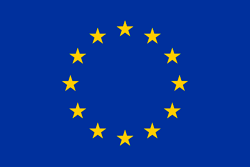TECNALIA took part in the final conference of the SHELTER project together with UNESCO
TECNALIA has developed a resilience index for historic areas which functions as a self-diagnosis and monitoring tool. It has also developed a decision-making system that includes a catalogue of solutions to improve resilience in historic areas with a multi-hazard perspective.
- The main results and experiences of the European SHELTER project, coordinated by TECNALIA, will be presented at this meeting.
- SHELTER aims to increase the resilience and reduce the vulnerability of cultural and natural heritage.
- SHELTER develops an operational, innovative and cutting-edge knowledge framework based on information and data as well as local knowledge: it will bring together the scientific community and heritage managers.
Five Open Labs
- All the project’s developments will be validated in five case studies in the form of laboratories, representing the main climate and environmental challenges in Europe, from heat waves to fires and floods.
- The cases also cover the different typologies of heritage.
Full agenda

This project has received funding from the Horizon EU research and innovation program, in accordance with Subsidy Agreement No. 821282.